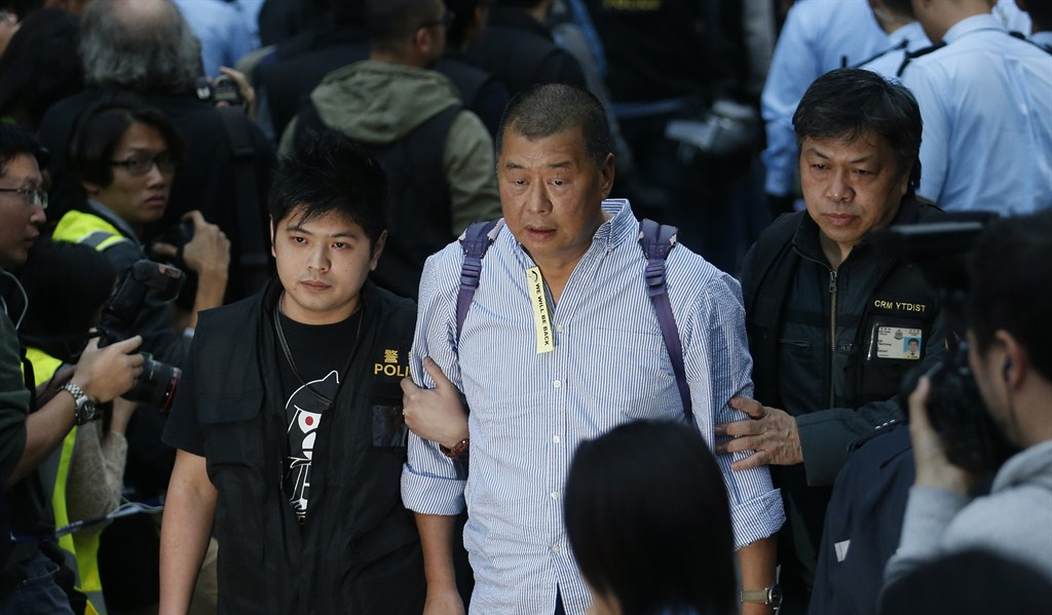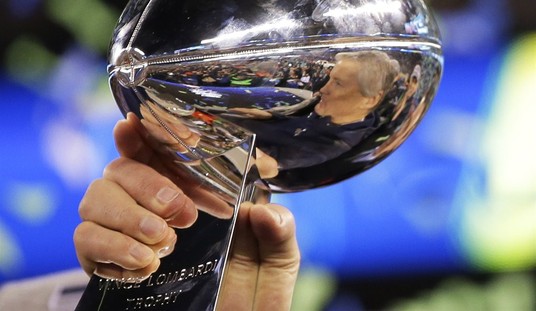Jimmy Lai may be the richest political prisoner in the world. Worth over $1 billion when the Hong Kong Provisional Government jailed him in 2020, Lai had started several lucrative businesses throughout Asia before becoming a media mogul with his Apple Daily newspaper. Since his imprisonment, the Chinese government has continued to push the boundaries of international law in order to perpetuate its persecution of Lai and others for the crime of protesting for their human rights.
As he became more outspoken about abuses by China, Lai also became increasingly involved in the Hong Kong democracy movement. It wasn’t long before the Chinese Communist Party (CCP) began harassing him and his various enterprises. The Beijing-backed government in Hong Kong jailed Lai over supposed violations of the questionable new security laws implemented earlier in 2020. He has faced regular delays in his trial ever since.
Related: Why China’s Communists Would Prefer Biden
In 2022, The Acton Institute produced a documentary on Lai’s predicament called The Hong Konger. Every American should watch it to understand the price paid in a totalitarian regime for standing up for one’s own human rights.
Despite its leftist bent and some anti-republican zingers in the article, The Atlantic did a pretty good job earlier this year describing Lai’s predicament:
When Beijing imposed the national-security law on Hong Kong in 2020, its goal was not simply to stifle free expression and lock up dissenters. The idea was to subordinate every institution in the city, leaving the “one country, two systems” framework that granted autonomy to the Chinese territory an empty slogan. Henceforth Beijing would no longer tolerate criticism from Hong Kong, or protests on its streets.
With the prodemocracy movement of 2019–20 effectively crushed, the Hong Kong government and officials in Beijing have found additional uses for the law: to settle old scores and rewrite history. By prosecuting a relatively small number of high-profile cases under the national-security law, the authorities are portraying the movement not as a popular uprising but as a traitorous conspiracy of troublemakers in league with foreign powers. Any plot needs a ringleader, and the authorities believe they have one to fit their narrative: the media tycoon Jimmy Lai.
Related: Xi Jinping’s Tiananmen Vision Is Coming for Us All
According to the Committee for Freedom in Hong Kong, Lai’s son, Sebastian, and his legal team addressed the United Nations Human Rights Council on June 30 and faced repeated interruptions and dismissive comments from China — a permanent member of the UN Security Council:
Jimmy Lai’s son, Sebastien Lai, addressed the 53rd Session of the United Nations Human Rights Council with Special Rapporteur on the rights to freedom of peaceful assembly and of association, Clément Nyaletsossi Voule.
Sebastien Lai urged the Special Rapporteur to publicly support the release of his father, who has been behind bars on questionable charges for 912 days. He called on China and Hong Kong to drop all charges against his father and to stop criminalising peaceful pro-democracy activists.
Tatyana Eatwell, a member of Jimmy Lai and Sebastien Lai’s international legal team, also raised the case of Jimmy Lai during the session. She spoke to the rapid increase of the political prisoner population in Hong Kong and underscored how Jimmy Lai continues to be detained for peacefully attending a Tiananmen Square Massacre vigil and sham fraud charges.
Mr Lai and Ms Eatwell were interrupted by China during their remarks. China claimed Mr Lai “exaggerated” his father’s case and accused Ms Eatwell of attacking “the political system in China contrary to the principles and purposes of the United Nation’s Charter”. The President blocked China’s attempt to silence the truth, and the Special Rapporteur supported Sebastien Lai and Ms Eatwell by urging China to release Jimmy Lai and other political prisoners who remain behind bars for fighting for freedom and democracy in Hong Kong.
VIDEO: China interrupted #JimmyLai's son Sebastien Lai & its legal team member @TatyanaEatwell at the 53rd Session of the @UNHumanRights Council w/ Special Rapporteur on the rights to freedom of peaceful assembly and of association today as they raise the case of his father. pic.twitter.com/RkYqbLVIaj
— Frances Hui 許穎婷 (@frances_hui) June 30, 2023
National Review gave expanded details as to why China’s diplomats chose to behave how they did:
The Chinese government regularly instructs its officials to derail speeches and appearances by Beijing’s political opponents at the U.N., leaning on both its official diplomatic corps and a network of Chinese-government-backed organizations. The case of Jimmy Lai, a pro-democracy media magnate, imprisoned under the Beijing-imposed 2020 national-security law, is particularly sensitive for the Chinese government.
“China’s conduct at the Human Rights Council in Geneva today shows they will stop at nothing to silence criticism. They will even interrupt a son speaking out for his father. A lawyer speaking out for her client,” said Caoilfhionn Gallagher, the head of Lai’s international legal team, in a statement.
Beijing has not stopped at increasing its pressure on peaceful protesters in committee meetings at the UN. The suspect security law imposed on Hong Kong in 2020 includes an extraterritoriality clause, meaning the CCP can pursue violators of its law in foreign countries. They have now placed $1 million bounties on eight exiled Hong Kong activists now living in the West – including the United Kingdom, Australia, and the United States.
You read that right: the CCP has placed international bounties on activists they wish to imprison for political dissidence.
Meanwhile, as questions swirl around the Biden administration’s perceived acquiescence on the international stage and whistleblower accusations that they’ve been compromised to the CCP, there seems little hope that pressure from the United States will have any positive bearing on freedom in China. In fact, the Biden administration is currently too busy investigating and prosecuting whistleblowers and kowtowing to take any moral stand against human rights abuses in China:
BREAKING UPDATE: The DoJ has announced multiple indictments against Dr. Gal Luft, just days after the NY Post's bombshell report featuring a 14 min video of Luft leveling explosive allegations of the Bidens selling out American interests to the Chinese.
Dr. Luft alleges that the… https://t.co/JvmZQ6q1Ey
— Charlie Kirk (@charliekirk11) July 10, 2023
EMBARRASSING: Janet Yellen REPEATEDLY bows to
Chinese OfficialSTOP CHINA'S FOOD & SECURITY THREAT!
Contact Congress ➡️ https://t.co/LGyyixPir7 pic.twitter.com/AhoU4IGM5Y
— ACT For America (@ACTforAmerica) July 10, 2023
As Beijing faces ever fewer consequences for its malign actions in international affairs, ask yourself: would we be better off with a West that acquiesces to the CCP, or by taking bold action to pressure them into better behavior?










Join the conversation as a VIP Member